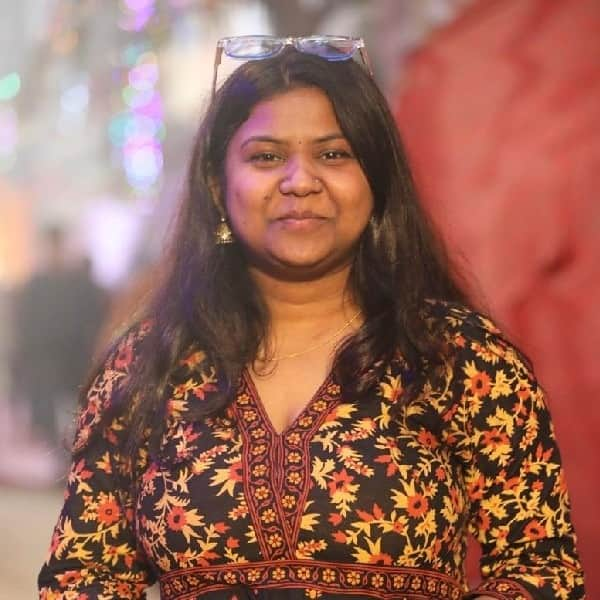synopsis
As dawn approached on the morning of 7 October 2023, many of the partygoers at the Nova music festival near Gaza's border took illegal recreational drugs like MDMA or LSD.
On the morning of October 7, 2023, many of the partygoers at the Nova music festival near Gaza's border took illegal recreational drugs like MDMA or LSD. Soon, Hamas gunmen stormed the festival, unleashing a massacre that claimed 360 lives and left dozens kidnapped.
Now, neuroscientists investigating the psychological aftermath of the attack suggest that MDMA—commonly known as ecstasy or molly—may have provided an unexpected shield against trauma. Preliminary research from Israel’s Haifa University indicates that those who had taken MDMA exhibited greater mental resilience in the months following the tragedy, BBC reported.
“This is the first time we’ve had the chance to study a mass trauma event where so many victims were under the influence of mind-altering substances,” said Prof. Roy Salomon, a leading researcher in the study.
The findings, currently under peer review, suggest that MDMA may have played a critical role in shaping survivors’ psychological responses, fostering a more positive mental state both during the attack and in its devastating aftermath. Of the 650 festival survivors tracked in the study, two-thirds had consumed recreational substances, including MDMA, LSD, marijuana, or psilocybin.
“MDMA, especially in its pure form, appeared to be the most protective,” said Prof. Salomon. Survivors who had taken the drug reported better sleep, lower levels of distress, and an overall stronger ability to cope compared to those who were sober during the attack.
The scientists believe MDMA’s well-documented ability to boost oxytocin—a hormone associated with trust and bonding—may have played a crucial role. As chaos erupted, those under the influence of MDMA displayed heightened camaraderie and fear management, which may have helped them endure the terror. More significantly, the drug seemed to leave survivors more receptive to love and support from friends and family in the weeks and months that followed.
Survivors' account
One survivor, Michal Ohana, is convinced the drug saved her life. “I feel like it saved my life, because I was so high, like I’m not in the real world,” she said. “Because regular humans can’t see all these things—it’s not normal.” She believes that, had she been sober, she would have frozen in fear, making her an easier target for the attackers.
Because only survivors could be studied, researchers acknowledge the difficulty in determining whether MDMA genuinely increased survival odds or merely altered post-trauma psychological processing. Nevertheless, the results have caught the attention of clinicians and researchers already exploring MDMA-assisted therapy for PTSD.
Dr. Anna Harwood-Gross, a clinical psychologist at Israel’s Metiv Psychotrauma Centre, called the preliminary findings “really important” for trauma therapists. She is currently involved in experimental MDMA treatments for Israeli military personnel suffering from PTSD. The war had initially raised ethical concerns about administering a drug that induces emotional vulnerability. However, the study’s findings suggest that even in the midst of extreme distress, MDMA might help individuals process trauma rather than exacerbate it.
“Can we give people MDMA when there’s a risk of an air raid siren? That’s going to re-traumatize them, potentially. This study has shown us that even if trauma occurs during therapy, the MDMA might also help process that trauma,” she explained.
MDMA therapy is still controversial. While Australia has approved its use for PTSD treatment, the U.S. Food and Drug Administration remains skeptical, citing concerns over study designs, long-term efficacy, and potential health risks, including heart complications and addiction. In Israel, MDMA remains illegal except for experimental research.
Beyond its implications for drug policy and PTSD treatment, the study underscores a broader shift in Israeli society’s perception of trauma.
“It’s as if this is the first trauma we’re going through,” said Danny Brom, founding director of the METIV Psychotrauma Centre at Herzog Hospital in Jerusalem. “I’ve seen wars here, I’ve seen lots of terrorist attacks, and people said, ‘We don’t see trauma here.’ Suddenly, there seems to be a general opinion that now everyone is traumatized, and everyone needs treatment. It’s a wrong approach.”
Many experts argue that the attacks shattered a deep-seated belief in Israel’s security, reactivating generational trauma linked to historical massacres and persecution.
“Our history is full of massacres,” said psychologist Vered Atzmon Meshulam. “As psychologists in Israel today, we are facing an opportunity to address deeply rooted traumas that have gone untreated for generations.”
The trauma is not confined to Israel. In Gaza, the humanitarian crisis is staggering. A devastating 15-month war has left thousands dead, injured, or homeless, with mental health resources scarce. While a six-week truce briefly paused the violence in January, the ceasefire has since collapsed. Fifty-nine Israeli hostages remain in Hamas captivity, while many Gazans brace for renewed hostilities.
For Nova Festival survivor Michal Ohana, the passage of time has not lessened the burden of that fateful day. “I wake up with this, and I go to sleep with this, and people don’t understand,” she said. “We live this every day. I feel the country supported us in the first months, but now after one year, they feel: ‘OK, you need to go back to work, back to life.’ But we can’t.”
)
 subscribe to Asianet News Whatsapp channel by clicking here.
subscribe to Asianet News Whatsapp channel by clicking here.